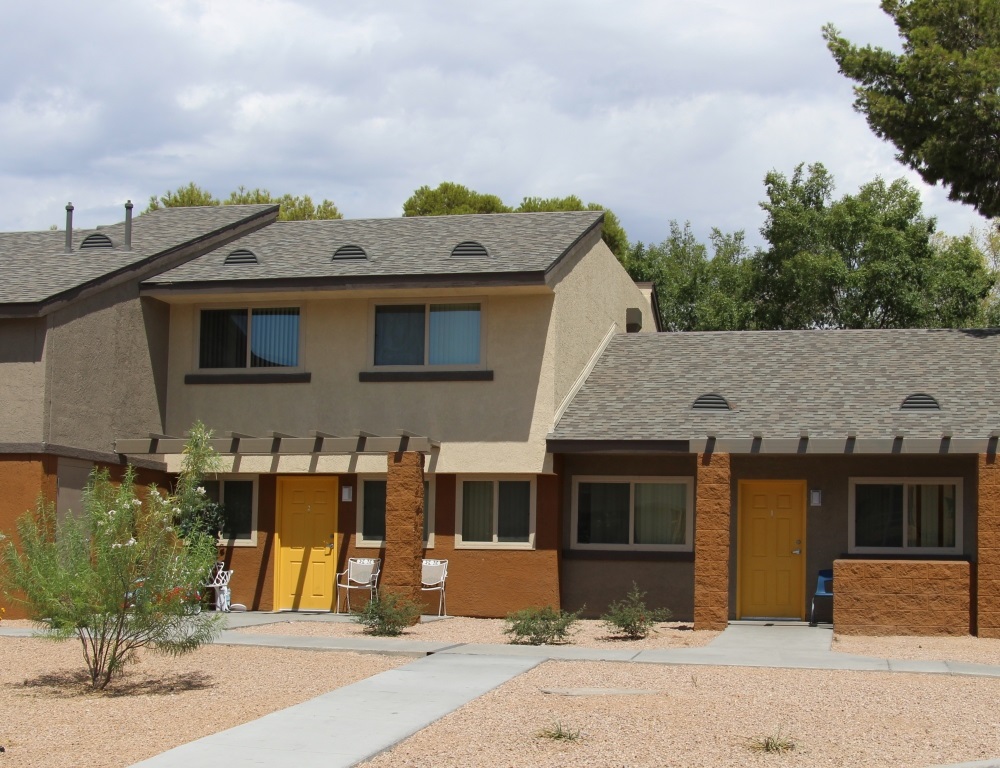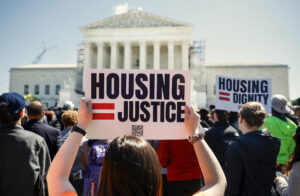5:30
News Story
Section 8 housing voucher waitlist is huge, number of landlords willing to accept vouchers isn’t
The Southern Nevada Regional Housing Authority is currently processing 10,000 applications for housing vouchers, which provide rental subsidies for low income residents.
That’s after 27,000 applied.
And there is no guarantee that even those approved for processing will find landlords who will accept them, state and local lawmakers were told recently.
The housing authority updated Clark County Commissioners on Tuesday about efforts to address the waitlist for the Housing Choice Voucher program, sometimes referred to as Section 8.
Officials with the housing authority gave a similar overview to state lawmakers during the Feb. 29 standing Interim Committee on Commerce and Labor.
“We know we need to increase not only the actual vouchers out in the community but the number of landlords willing to accept those vouchers,” Kathi Thomas, the chief housing officer for the housing authority told state lawmakers last week. “It’s not mandated and landlords sometimes will refuse to work with participants using the vouchers to pay for rent.”
Clark County in 2020 temporarily prohibited rental discrimination for source of income during the pandemic, which prevented landlords from refusing to rent to people using housing vouchers or other assistance programs. But the law expired in December 2021.
During Tuesday’s presentation on housing choice vouchers, the previous ordinance wasn’t discussed.
In an interview, Clark County Commission Chair Tick Segerblom said he has not been informed of a need to bring back the ordinance but said he would reach out to the housing authority.
“I’m happy to push (the ordinance) again, but that hasn’t come up at the housing authority,” he said. “It hasn’t been on my radar as far as something we need.”
In general, people struggle to obtain the limited supply of housing vouchers.
In a report released in 2021, the Center on Budget and Policy Priorities estimated Nevadans wait, on average, 38 months, more than three years, to receive housing vouchers.
The housing authority currently allocates 12,598 vouchers for low income residents in Southern Nevada.
Lewis Jordan, the executive director of the housing authority, told commissioners on Tuesday that the agency opened its wait list for vouchers in 2023 and received 27,000 applications.
“We did a lottery and we ended up with 10,000 people that we will look to house over a process over the next few years,” he said.
The voucher provides a rent subsidy, which means landlords are paid directly by the housing authority. That doesn’t stop landlords from rejecting vouchers and refusing to rent to participants.
Legislation to prohibit source of income discrimination, echoing the now expired 2020 Clark County ordinance but at a state level, would have included disability benefits and rental assistance along with housing vouchers, and was proposed in the 2021 legislative session by Democratic Assemblywoman Cecelia González.
The bill didn’t get a hearing.
A similar bill resurfaced in 2023 and received a hearing by the Commerce and Labor Committee, where it died without a vote.
Housing authority officials told state and local lawmakers at recent hearings they have worked on other methods to encourage more landlords to voluntarily accept renters using housing vouchers.
Jordan, the housing authority’s executive director, told told commissioners the authority set aside $225,000 in funds to offer incentives to landlords to accept vouchers.
The money, he said, could go toward $1,000 signing bonuses for landlords and up to $2,500 for repairs on units previously rented to voucher holders, although Jordan said the latter expense isn’t a big issue for landlords.
“I want the record to show we don’t spend a lot of money in that category,” he said, referring to funds going toward repairs. “There is no proof in data that shows voucher holders cause any more issues than anyone else.”
The housing authority asked the county as well as other jurisdictions to “contribute to that pot so we can encourage, solicit and recruit more landlords.”
Segerblom said the biggest issue around housing vouchers was that the amount offered is minimal.
He said the county plans to talk with the congressional delegation about the federal government’s need to authorize more — and larger — vouchers.
“When you compare our county with Chicago, which has the same population, we have vastly less vouchers,” he said.
Our stories may be republished online or in print under Creative Commons license CC BY-NC-ND 4.0. We ask that you edit only for style or to shorten, provide proper attribution and link to our website. AP and Getty images may not be republished. Please see our republishing guidelines for use of any other photos and graphics.




